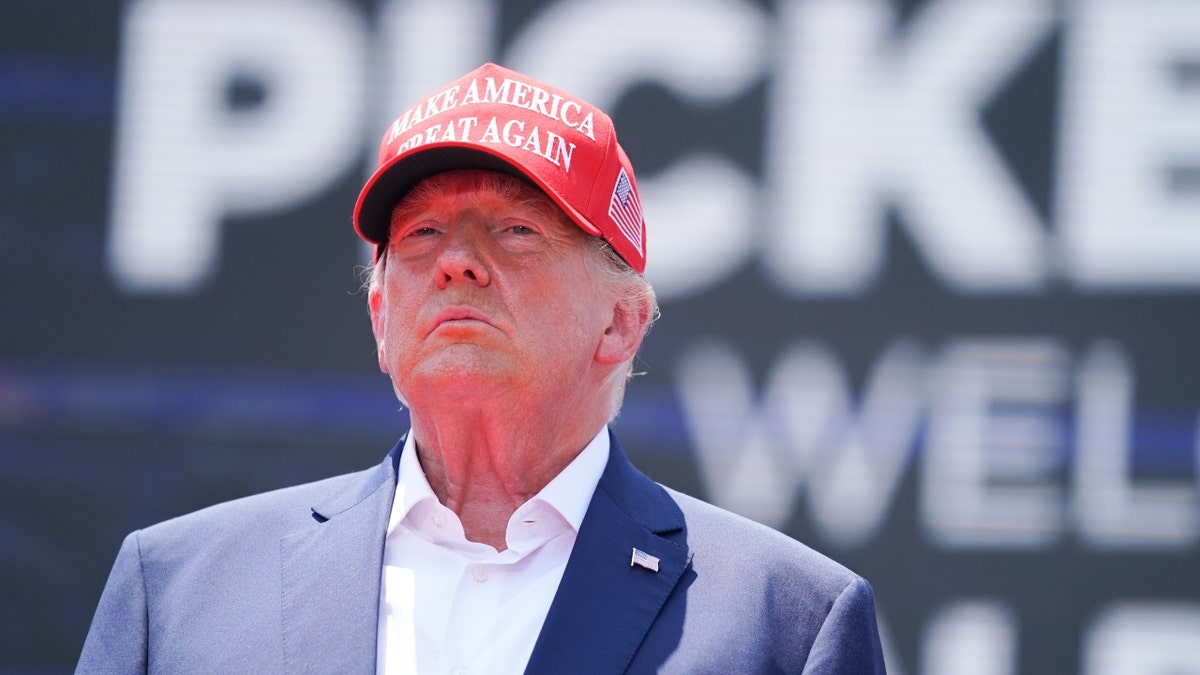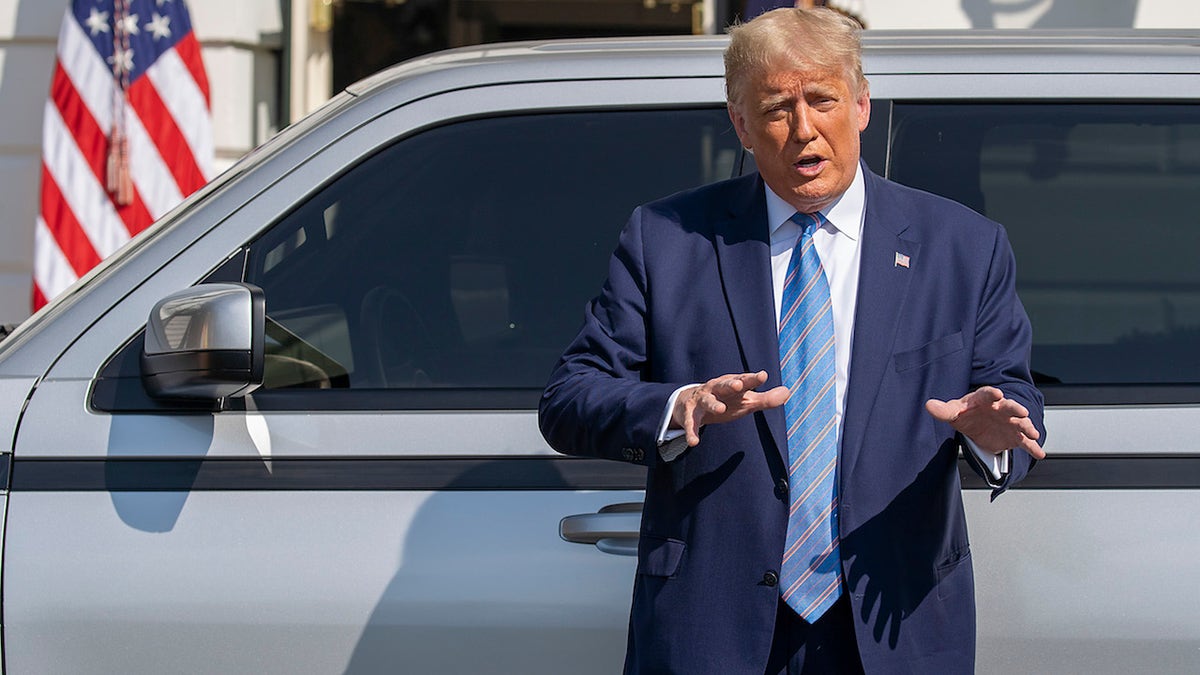
This article is more than
2 year old
Former U.S. President Trump is not immune from prosecution in the 2020 federal election case, a federal appeals court ruled Tuesday.
The U.S. Court of Appeals - D.C. Circuit considered Trump’s claim of presidential immunity from prosecution for his actions in office, including his alleged role in overturning his 2020 election loss, ultimately saying it was "unpersuaded by his argument" and ruled a case against him can proceed.
"We have balanced former President Trump’s asserted interests in executive immunity against the vital public interests that favor allowing this prosecution to proceed," the court wrote in its ruling Tuesday.
It determined: "We conclude that the interest in criminal accountability, held by both the public and the Executive Branch, outweighs the potential risks of chilling Presidential action and permitting vexatious litigation."
TRUMP TRIAL DELAYED IN CASE STEMMING FROM SPECIAL COUNSEL JACK SMITH'S JAN. 6 INVESTIGATION

The legally untested question before the court is whether former presidents can be prosecuted after they leave office for actions taken in the White House related to their official duties.
Steven Cheung, Trump campaign spokesperson, said in a statement that the case will have far-reaching consequences, both for Trump and all future presidents.
"If immunity is not granted to a President, every future President who leaves office will be immediately indicted by the opposing party," he said. "Without complete immunity, a President of the United States would not be able to properly function!"
The Trump campaign spokesperson added: "Deranged Jack Smith’s prosecution of President Trump for his Presidential, official acts is unconstitutional under the doctrine of Presidential Immunity and the Separation of Powers. Prosecuting a President for official acts violates the Constitution and threatens the bedrock of our Republic. President Trump respectfully disagrees with the DC Circuit’s decision and will appeal it in order to safeguard the Presidency and the Constitution."
In the case, Trump claimed both that he had presidential immunity and that the case violated a double jeopardy clause, as he was impeached by the U.S. House of Representatives over his alleged involvement. He was later acquitted after the U.S. Senate did not vote to convict him of the charge.
The two defenses were among four arguments Trump's legal team pursued in arguing the court should reject the case.

In Dec. 2023, U.S. District Judge Tanya Chutkan, who is presiding over the case, rejected Trump’s arguments, saying the office of the president "does not confer a lifelong ‘get-out-of-jail-free’ pass."
In the federal appeals court's Tuesday ruling, it mentioned Trump's impeachment case but similarly rejected these claims of immunity and double jeopardy.
It concluded that "concerns of public policy, especially as illuminated by our history and the structure of our government," as argued by the prosecution, compel "the rejection of his claim of immunity in this case."
And, it wrote: "We also have considered his contention that he is entitled to categorical immunity from criminal liability for any assertedly ‘official’ action that he took as President — a contention that is unsupported by precedent, history or the text and structure of the Constitution. Finally, we are unpersuaded by his argument that this prosecution is barred by ‘double jeopardy principles.’ Accordingly, the order of the district court is AFFIRMED," it wrote.
Fox News contributor Jonathan Turley said the outcome is not particularly surprising to legal experts but that it could impact or expedite the legal schedule for Trump, who continues to seek re-election.
The former president is expected to appeal the decision, putting his case — the first of its kind — before the country's highest court.
Trump has up to 90 days to appeal the decision to the U.S. Supreme Court.

The trial date carries enormous political ramifications and Trump hopes an eventual decision will be delayed until after the November election.
CLICK HERE TO GET THE FOX NEWS APP
Should that happen and if Trump defeats President Biden, he could presumably try to use his position as head of the executive branch to dismiss the case. He could also potentially seek a pardon for himself, although such a situation has no precedent.
After Chutkan's decision in Dec., Trump’s lawyers appealed to the D.C. appeals court.
At the same time, Smith asked the Supreme Court last month to weigh in first, hoping it would take up the matter quickly and issue a speedy ruling.
The Supreme Court appeared to signal that it preferred to stay out of the process when it rejected the request.
Fox News' Paul Steinhauser, Jake Gibson, and The Associated Press contributed to this report.